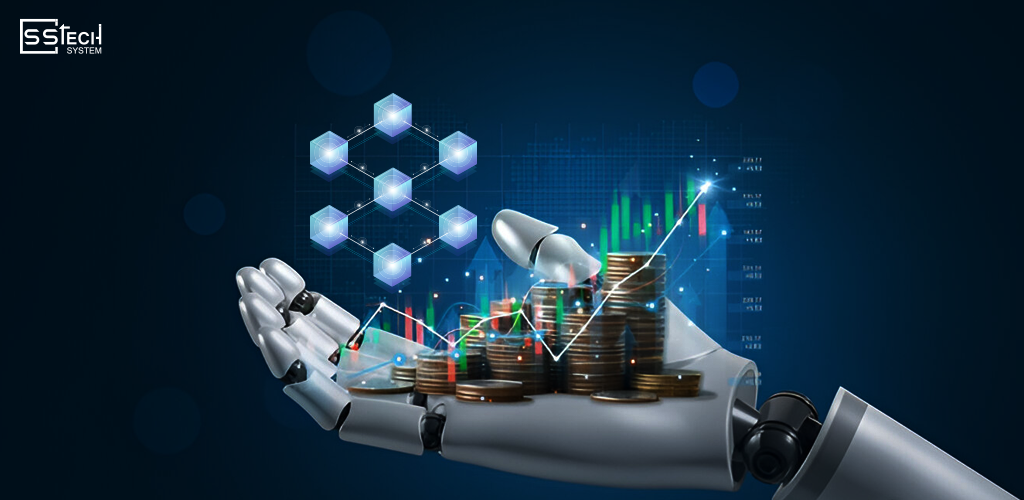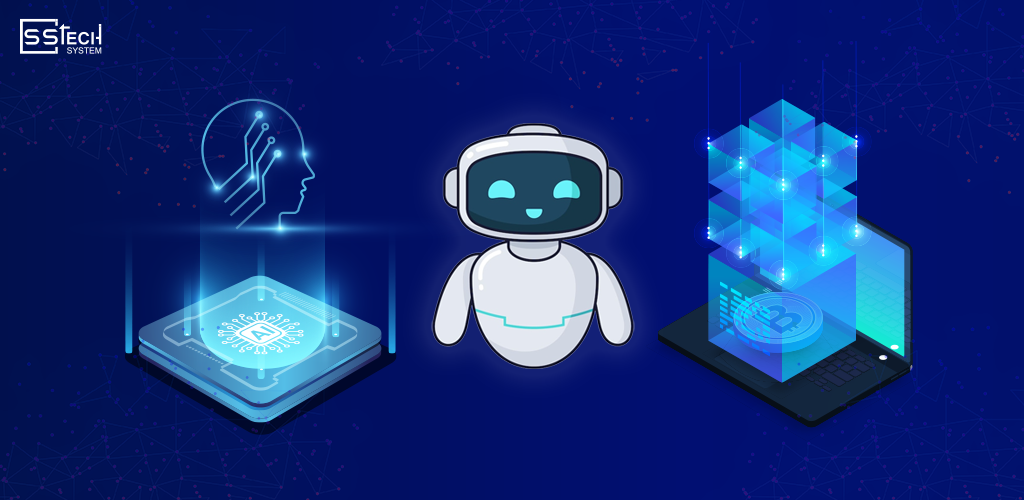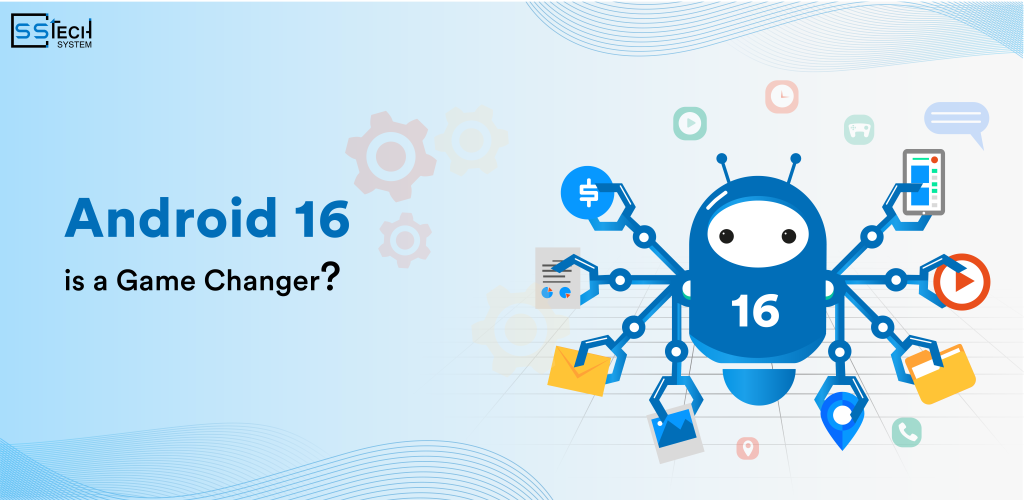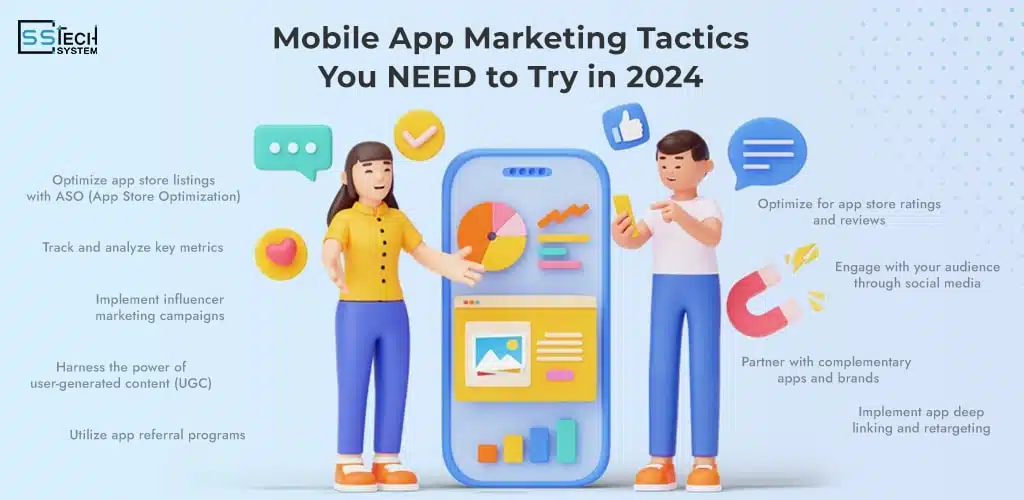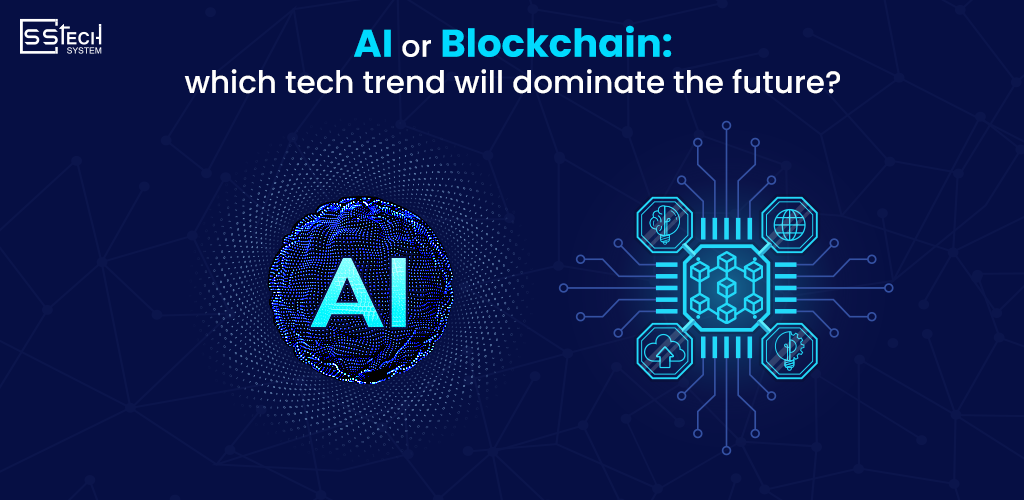
With digital disruption being how businesses usually operate and in any business transformation, you have two powerful technologies literally leading the way: AI or Blockchain. Across the USA, Australia, and the UAE, as organizations search for ways to develop and sustain competitive advantages, there is now a need to understand the capabilities of these technologies.
Both Artificial Intelligence (AI) and Blockchain increase human-like decision-making and smartness, and automate processes, and Blockchain offers decentralized, secure, tamper-proof digital ledgers. The rapid rise of Artificial Intelligence vs Blockchain has led to a lively debate on which is more revolutionary, useful, and future-proofed. It’s not about who leads today, and it’s not about who will lead tomorrow.
Today, the battle of Blockchain Technology Vs Artificial Intelligence is echoing everywhere — from healthcare to finance, from logistics to customer service. In this article, we’ll help you dig in on the challenges, innovations, investment potential and long-term of each technology and then decide which has the smarter bet.
AI or Blockchain: Which is driving more innovation?
Both technologies are innovating extremely quickly, for different reasons in terms of real-world applications and immediate impact. The market for AI technologies is vast, amounting to around 244 billion U.S. dollars in 2025 and is expected to grow well beyond that to over 800 million U.S. dollars by 2030.
AI development by SSTech System exemplifies the real-time use of AI in domains such as predictive analytics, customer support chatbots, voice recognition, and image analysis. Global companies already use AI tools to help make smarter business choices, create a more personalized user experience and to give customers a more engaging experience.
For AI to get better, it feeds on data, big data, structured data and even unstructured data. In e-commerce, financial, healthcare and retail industries, AI is indispensable as machine learning algorithms are able to find and detect patterns and anomalies that humans may not be able to identify.
On the other hand, the innovation around Blockchain has a lot to do with taking secure, unchangeable systems for record keeping and value transfer to the masses. Blockchain has shown its merit in bringing trust and transparency to cryptocurrency platforms, to decentralized finance (DeFi) and more, without a central authority.
If we compare Blockchain vs AI use cases, AI excels in personalization, automation and prediction and Blockchain rules where security, data integrity and decentralization is required.
The exploration of the partnership between AI and Blockchain integration is evidencing pathways for new innovation frontiers in companies. AI can process encrypted data sets that are stored in the blockchain and pull actionable insights, without compromising on privacy. The combination of technologies in this offering provides unprecedented transparency and intelligence.
Best Technology to Invest in: AI or Blockchain
Today, investors and enterprises are cautiously optimistic and strategically so when it comes to where they put their resources. Depending on the industry it is used in and the market in which it operates, the scalability which it can offer and what industry competitors it will face, companies would often choose to invest between AI or Blockchain.
The latest AI trends in business state that AI can offer quick ROI through automating manual tasks, optimizing logistics and presenting high-quality insights. More and more, startups and corporations alike are incorporating AI into products and services, with a virtual assistant, a recommendation engine or a fraud detection system.
In sectors where trust and transparency are everything, from supply chain to healthcare, to legal, Blockchain is the new game changer. For example, in the UAE, national digital initiatives are investigating Blockchain to digitize government records, and, in Australia, blockchain-enabled voting systems are being tested.
If compared to one and other, forward-thinking companies could invest in hybrid solutions. AI blockchain technology has a compelling opportunity to rise. Businesses integrating AI with Blockchain achieve privacy-preserving analytics, immutable audit trails and smarter decentralized applications.
AI or Blockchain: Which one has a brighter future?
The future of AI and Blockchain is promising, with their integration depending on industry needs and tech progress. AI development is advancing toward general intelligence through NLP, computer vision, and reinforcement learning.
The roadmap to the future of blockchain development points to much less centralized power structures. We’re starting to see concepts like decentralized autonomous organizations (DAOs), self-sovereign identity and tokenized economies not just helping fund the next Unicorn startup, but also respecting and protecting your access to information and education, affordably decentralized governance and even socially aware media.
However, when we ask which is better AI or Blockchain, it is very important to know that both are different in its own way. AI is about intelligence and insight anymore, because Blockchain is about transparency and trust. For businesses, the two could be combined to create the best of both worlds – smart decisions, reliant on solid data.
How are Companies using AI and Blockchain Together?
When you combine the AI blockchain technologies now available, it is not a buzzword, it is a powerful set of tools for the future. Blockchain technology is forecast to increase to nearly 1,000 trillion U.S. dollars by 2032. AI-powered analytics paired with Blockchain security is transforming industries. In healthcare, AI enables faster diagnoses, while Blockchain ensures patient data remains secure, tamper-proof, and traceable.
Building these solutions usually needs highly skilled professionals such as a Full Stack Blockchain Developer who knows how to develop and work in decentralized architectures, alongside with an AI Consultant who understands the theory and practice of building and training models. They can create end-to-end solutions with intelligence and integrity, together.
One of the latest developments includes Blockchain AI tools that enable privacy-preserving federated learning. These tools allow AI algorithms to train on decentralized datasets without the data ever leaving its source, which is crucial for privacy-centric industries like finance or defense.
Challenges and limitations of AI or Blockchain
Both AI or Blockchain have a great potential to transform the lives of people they face roadblocks in their way to mainstream adoption. The technology relies heavily on massive datasets to start with and AI forms the foundation of it.
Without good clean labable data, Artificial Intelligence algorithms can deliver incorrect or biased results. In addition, the privacy concerns and related regulatory scrutiny for the way AI systems handle personal data are only increasing. A bad AI prediction can have serious consequences (within seconds or minutes) in high-risk domains like Healthcare or Finance.
The AI development itself already involves technical complexity. There are continuous model training, real-time adaptation and ethical constraints that engineers and developers must take into account. Therefore, successful AI deployments will require strong IT Support & Maintenance Services to run and maintain them successfully.
On the flip side, Blockchain development isn’t without its bottlenecks. It’s a big issue around how scalable blockchains are—blockchains are inherently slower due to consensus protocols. Large-scale enterprise use of public blockchains such as Ethereum can only cope with a limited number of transactions per second. In addition, regulatory uncertainty in USA and Australia has kept organizations from embracing the technology to its full capacity.
The Blockchain Developer roadmap is challenging, requiring mastery of cryptography, smart contracts, and consensus mechanisms.
Conclusion
The battle of AI or Blockchain is not a competition; it’s collaboration. Different challenges are addressed by each technology and different benefit is provided. The smartest thing for businesses in the USA, Australia and UAE is to not decide between the two but to know when, where and how to use them.
When choosing between a career in Blockchain vs AI, consider your interests and strengths. AI roles focus on data science, modeling, and behavioral analysis, while Blockchain requires expertise in cryptography, distributed systems, and smart contracts.
You can hire dedicated developer teams experienced in these two areas from partners such as SSTech System whether you are a startup and want to create disruptive applications or you are a corporation desiring to upgrade legacy systems. Thanks to their expertise in AI vs Blockchain development, SSTech System has enabled worldwide clients to tap into the combined strength of intelligence and decentralization. As we look toward emerging technologies in 2025, it’s evident that the convergence of AI and Blockchain will shape the next generation of digital solutions.
Frequently Asked Questions
That’s dependent on your goals. While Blockchain offers secure, tamper-proof systems, and AI, for great automation and decision making. Most often both are worth integrating.
AI relates to learning from data and simulating human intelligence, while Blockchain is a decentralised ledger system which is transparent and secure. Each of them serves a complementary function.
It is also benefiting healthcare, finance, logistics, retail and government sectors. This is where AI helps improve efficiency & insights and Blockchain to ensure the authenticity of data and lower fraud.
Both are future-proof, but in different ways. AI has already made its way into all kinds of business tools and consumer applications. Blockchain is still in its infancy, but has much disruptive potential in the creation of trusted, decentralized ecosystems.
